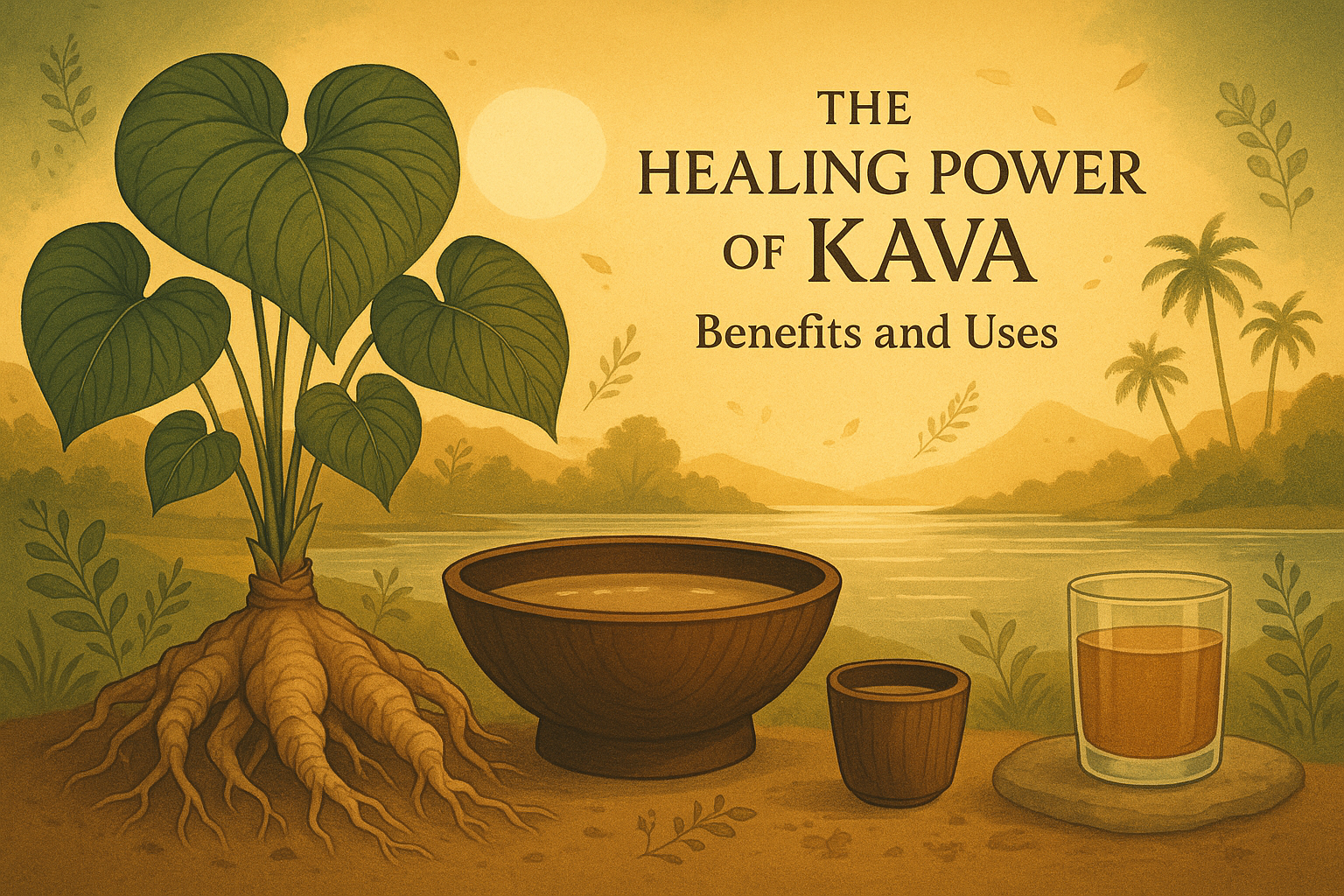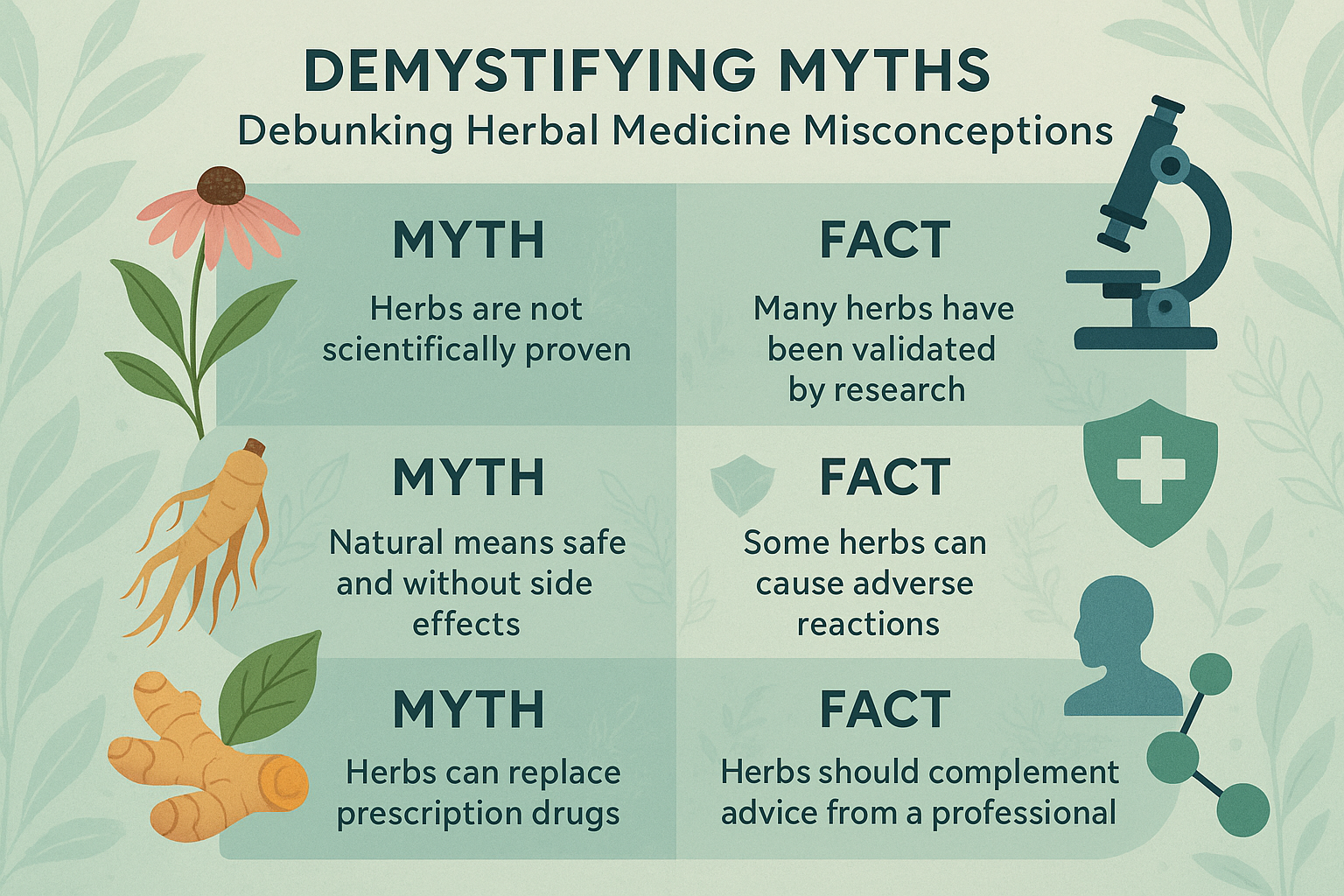Herbal medicine, rooted in ancient wisdom, has been a cornerstone of healthcare for centuries. This practice involves the use of plant-based substances to promote health and treat ailments. As modern times progress, there is a growing interest in revisiting these natural remedies for their holistic approach to wellness.
In today's world, herbal medicine remains relevant due to its potential to offer personalized and integrative healthcare solutions. People are increasingly looking for ways to complement conventional treatments with natural therapies that address both physical and mental well-being. The convergence of traditional knowledge and modern science has led to a resurgence of herbal medicine, highlighting its significance in contemporary healthcare.
Key focus areas of this article:
- The Rich History and Principles of Ayurveda: Delving into the ancient origins and foundational texts.
- Herbal Medicine in Modern Drug Discovery: Examining the role of plant-based medicines in current research.
- Balancing Tradition and Innovation: Exploring integration challenges and opportunities.
- Restoring Balance: Understanding Ayurvedic treatment strategies.
- Preserving Cultural Wisdom: Efforts to safeguard and promote traditional practices.
- Nurturing the Body and Soul: The relationship between mindfulness, nature connection, and herbal remedies.
- Embracing a Sustainable Future: Promoting sustainable practices in sourcing medicinal plants.
- The Way Forward: Uniting ancient wisdom with modern science for global health.
By exploring these areas, you will gain insights into how ancient herbal practices continue to influence modern healthcare, ensuring a holistic approach to well-being.
1. The Rich History and Principles of Ayurveda
Ayurveda is one of the oldest traditional systems of medicine, originating from ancient India more than 5,000 years ago. It is deeply rooted in spiritual texts called the Vedas, specifically the Atharva Veda, which contains hymns and chants about health and healing. Another important text is the Charaka Samhita, a detailed book on medicine written by the sage Charaka.
Key Principles of Ayurveda
Ayurveda follows a holistic approach to wellness, focusing on balance between the body, mind, and spirit. This system revolves around several key concepts:
- Doshas: The three basic energies or humors—Vata (air and space), Pitta (fire and water), and Kapha (water and earth)—that govern bodily functions.
- Agni: The digestive fire responsible for metabolism.
- Ojas: Essential energy that supports physical strength and mental clarity.
- Prakriti: An individual's unique constitution determined at birth.
These principles form the basis for diagnosis and personalized treatment plans.
Uniqueness Among Traditional Systems of Medicine
What sets Ayurveda apart from other traditional systems of medicine is its comprehensive approach. It integrates various elements such as:
- Dietary habits
- Lifestyle choices
- Herbal remedies
- Yoga
- Meditation
- Ethical conduct
Instead of just focusing on symptoms, Ayurveda aims to address the root causes by restoring harmony within the entire being.
Ayurveda's emphasis on personalized care makes it unique among many other medical systems. Its extensive collection of texts offers a solid framework for understanding human health in relation to both internal and external factors. Even today, this ancient wisdom continues to provide valuable insights into modern healthcare practices.
2. Herbal Medicine in Modern Drug Discovery
Plant-based medicines play a crucial role in today's efforts to discover new drugs. Many of the medicines we use today actually come from plants, highlighting the importance of herbal medicine in finding innovative treatments. For example, aspirin was originally derived from willow bark, and quinine, which is used to treat malaria, comes from the bark of the cinchona tree.
Researchers use various methods to explore and harness the healing properties of herbs:
- Phytochemical Analysis: This involves identifying and isolating the active compounds present in plants. Techniques like chromatography and mass spectrometry are used to identify these substances.
- In Vitro Studies: Laboratory tests on cell cultures help determine how effective and safe plant extracts are before they're tested on animals or humans.
- Ethnobotanical Surveys: By studying how different cultures traditionally use plants, scientists can discover promising options for further investigation. The knowledge passed down through generations often provides valuable insights into potential medicinal uses.
- Clinical Trials: Rigorous testing on human volunteers is carried out to establish whether herbal treatments are both effective and safe. These trials are essential for integrating plant-based medicines into mainstream healthcare.
The process of discovering new drugs from herbs is complex, as it combines ancient wisdom with state-of-the-art technology to create treatments that work well and don't harm people. This approach not only adds to our understanding of how medicines work but also ensures that what we know from traditional practices is backed by scientific evidence.
3. Balancing Tradition and Innovation: Integrating Herbal Medicine with Modern Healthcare
Challenges in Integration
Integrating traditional medicine with modern healthcare presents multiple challenges:
- Regulatory Hurdles: Herbal medicines often face stringent regulatory requirements that vary across countries. Standardizing these regulations can be complicated due to the diverse nature of herbal remedies.
- Scientific Validation: The efficacy and safety profiles of many herbal medicines require rigorous scientific validation. This process necessitates extensive research and clinical trials, which can be both time-consuming and resource-intensive.
- Knowledge Gaps: Modern healthcare practitioners may lack sufficient training in herbal medicine, creating a gap in understanding and acceptance.
- Quality Control: Ensuring the consistent quality of herbal products is challenging. Variability in plant sources, harvesting methods, and preparation techniques can impact the potency and effectiveness of herbal medicines.
Opportunities for Integration
Despite these challenges, various opportunities exist to facilitate the integration of herbal medicine into conventional healthcare systems:
- Collaborative Research: Joint efforts between traditional healers and modern scientists can enhance understanding and improve the efficacy of herbal treatments. Collaborative research initiatives can bridge knowledge gaps and foster mutual respect between different medical paradigms.
- Educational Programs: Developing comprehensive educational programs for healthcare providers can promote better understanding and utilization of herbal medicines. Integrating courses on traditional medicine within medical school curricula is one approach to achieving this goal.
- Standardization Protocols: Establishing standardized protocols for the cultivation, extraction, and preparation of herbal medicines can ensure consistency and quality. International cooperation can aid in developing these standards, making it easier to regulate and approve herbal products globally.
- Holistic Healthcare Models: Embracing holistic healthcare models that incorporate both conventional and traditional practices can offer more personalized treatment options. Such models recognize the value of addressing physical, mental, and emotional health collectively.
The integration of traditional medicine with modern healthcare underscores a shift towards more holistic, patient-centered approaches. As we move forward, leveraging ancient wisdom alongside contemporary scientific advances holds promise for enhancing global health outcomes.
4. Restoring Balance: Understanding Treatment Strategies in Ayurveda
The Concept of Doshas
Ayurveda, the ancient Indian system of medicine, revolves around the concept of doshas, which are fundamental bio-energies that govern the physiological and psychological functions of the body. The three primary doshas—Vata, Pitta, and Kapha—represent different combinations of the five elements (earth, water, fire, air, and ether). Understanding your dominant dosha helps practitioners tailor treatments to restore balance and promote health.
- Vata: Composed of air and ether, Vata governs movement and communication within the body.
- Pitta: Made up of fire and water, Pitta oversees digestion and metabolism.
- Kapha: Formed by earth and water, Kapha controls structure and lubrication.
Significance in Diagnosis and Treatment
Diagnosis in Ayurveda involves identifying imbalances in these doshas. Practitioners assess physical symptoms, mental state, lifestyle, and diet to determine which dosha is out of balance. Treatment strategies aim to balance these energies through:
- Dietary recommendations: Specific foods can pacify or aggravate each dosha.
- Herbal remedies: Herbs are chosen based on their properties to balance the affected dosha.
- Lifestyle changes: Activities such as yoga, meditation, and sleep patterns are adjusted.
The Role of Pancha Karma
Pancha Karma is a cornerstone therapy in Ayurveda aimed at detoxification and rejuvenation. This comprehensive process includes five primary actions designed to cleanse the body of toxins:
- Vamana (Emesis): Induced vomiting to eliminate toxins from the stomach.
- Virechana (Purgation): Use of laxatives to cleanse the intestines.
- Basti (Enema): Herbal enemas for colon cleansing.
- Nasya (Nasal administration): Herbal oils administered through the nose to clear sinuses.
- Rakta Moksha (Bloodletting): Traditional blood purification techniques.
Saptadhatus
In addition to doshas, Saptadhatus or the seven bodily tissues play a crucial role in maintaining health. These include:
- Rasa (plasma)
- Rakta (blood)
- Mamsa (muscle)
- Meda (fat)
- Asthi (bone)
- Majja (marrow)
- Shukra (reproductive tissue)
Balancing these tissues through appropriate dietary measures, herbal treatments, and lifestyle practices is essential for overall well-being.
Understanding these principles offers a holistic approach to health that combines ancient wisdom with modern needs, paving the way for integrated treatment strategies that honor both tradition and innovation.
5. Preserving Cultural Wisdom: Traditional Medicine in the Modern World
Traditional medicine, particularly Indian systems of medicine like Ayurveda, represents a reservoir of ancient wisdom that is crucial to safeguard and promote. These practices are not merely historical artifacts; they are living traditions that continue to offer valuable insights into health and wellness.
Importance of Safeguarding Indigenous Knowledge Systems
1. Cultural Heritage
Traditional medicine practices are integral to the cultural heritage of many communities. They embody centuries of empirical knowledge passed down through generations.
2. Holistic Health Approaches
Unlike modern medicine's often symptom-focused approach, traditional systems like Ayurveda emphasize holistic health, balancing mind, body, and spirit.
3. Biodiversity Conservation
Many traditional remedies rely on locally sourced plants and herbs, fostering biodiversity and encouraging sustainable use of natural resources.
Efforts to Revitalize Traditional Medicine Practices
Revitalization efforts are underway globally to integrate these age-old practices with contemporary healthcare.
1. Documentation and Research
- Projects aimed at documenting traditional remedies and practices help in preserving this knowledge for future generations.
- Scientific research validating the efficacy of these remedies ensures their credibility in modern healthcare settings.
2. Educational Initiatives
- Institutions offering courses and degrees in traditional medicine foster new generations of practitioners who can bridge the gap between ancient wisdom and modern science.
- Workshops and community programs promote awareness about the benefits and proper use of herbal medicines.
3. Policy Support
- Governments and international organizations are increasingly recognizing the value of traditional medicines and incorporating them into national healthcare policies.
- Regulatory frameworks are being developed to ensure the quality, safety, and efficacy of traditional medical practices.
Efforts to preserve traditional medicine have expanded beyond mere archival efforts. These ongoing initiatives aim to revitalize ancient knowledge in ways that benefit contemporary society, offering sustainable solutions for global health challenges amidst modernization.
6. Nurturing the Body and Soul: Herbal Medicine, Mindfulness, and Nature Connection
The practice of herbal medicine is deeply intertwined with the concepts of mindfulness and connection with nature. This relationship forms a holistic approach to well-being, addressing not only physical health but also mental and emotional balance.
Synergistic Relationship
- Mindfulness: Being present and fully engaging with each moment enhances your understanding and appreciation of natural remedies. It encourages a deeper awareness of how your body responds to different herbs, fostering a more personalized approach to health.
- Nature Connection: Spending time in nature has been shown to reduce stress, improve mood, and boost overall well-being. This connection complements the use of herbal medicine by grounding you in the natural world from which these remedies originate.
Holistic Well-Being
Using herbal medicine alongside mindfulness practices can lead to a more balanced lifestyle:
- Stress Reduction: Herbs like Ashwagandha and Valerian root are known for their calming effects. When combined with mindfulness techniques such as meditation or deep breathing exercises, these herbs can significantly reduce stress levels.
- Enhanced Immune Function: Mindfulness practices have been linked to improved immune function. Herbs like Echinacea and Elderberry further support this by boosting your body's natural defenses.
- Emotional Balance: The use of adaptogenic herbs like Rhodiola Rosea can help stabilize mood swings and reduce anxiety. Incorporating mindfulness allows you to better understand the emotional cues that indicate when these herbal interventions are needed.
Practical Applications
To integrate these practices into daily life:
- Meditative Herbal Teas: Prepare herbal teas using calming herbs such as Chamomile or Lavender. Use this as an opportunity for a mindful moment, focusing on the aroma, taste, and warmth of the tea.
- Forest Bathing: Spend time walking in nature while practicing mindfulness. Pay attention to the sights, sounds, and smells around you. This practice can enhance your connection with the plants that provide medicinal benefits.
- Mindful Gardening: Growing your own medicinal herbs fosters a hands-on connection with nature. Tending to these plants mindfully can be both therapeutic and educational.
The integration of herbal medicine with mindfulness and nature connection offers a comprehensive path toward holistic health. This approach not only treats symptoms but also nurtures overall well-being by harmonizing body, mind, and spirit through ancient wisdom and modern practices alike.
Embracing a Sustainable Future through Herbal Medicine and Environmental Stewardship
Herbal medicine practitioners play a crucial role in promoting sustainable practices. Their approach to sourcing medicinal plants involves deep environmental awareness and action. With the global crisis of environmental degradation, sustainable living becomes essential.
Key Practices for Sustainable Herbal Medicine
1. Ethical Sourcing
- Practitioners prioritize harvesting plants in ways that ensure their natural populations remain stable.
- This includes wildcrafting techniques that avoid overharvesting and take into account the plant's life cycle.
2. Cultivation of Medicinal Plants
- Growing herbs in controlled environments reduces the strain on wild populations.
- Organic farming methods maintain soil health and biodiversity.
3. Community Involvement
- Local communities are often involved in cultivating and harvesting medicinal plants.
- This not only supports local economies but also encourages traditional ecological knowledge.
4. Sustainable Packaging
- Using biodegradable or recyclable materials for packaging herbal products reduces environmental impact.
- Minimalistic packaging designs further reduce waste.
Reducing Environmental Impact
Herbal medicine practitioners implement several strategies to minimize their ecological footprint:
- Conservation Efforts: They engage in conservation programs aimed at protecting endangered plant species.
- Educational Initiatives: Raising awareness about the importance of sustainability among consumers and other stakeholders.
- Research and Development: Investing in research to discover new, less resource-intensive ways to use medicinal plants effectively.
By embedding these sustainable practices into their work, herbal medicine practitioners contribute significantly to reducing environmental impact while ensuring the longevity of herbal resources. This dedication to environmental stewardship aligns closely with the principles of holistic well-being, ensuring that both humanity and nature thrive together.
The Way Forward: Uniting Ancient Wisdom with Modern Science for Global Health
The importance of ancient wisdom in shaping the future of herbal medicine and healthcare worldwide cannot be emphasized enough. Here are some key factors:
1. Integrative Approaches
The combination of traditional knowledge and state-of-the-art science has opened up new possibilities for developing comprehensive and personalized healthcare solutions. By subjecting herbal remedies to rigorous scientific testing to confirm their effectiveness and safety, we can establish a stronger foundation for health.
2. Global Collaboration
Collaboration among researchers, practitioners, and policymakers from different parts of the world has been crucial in modernizing traditional practices. This integration is already happening in several countries that have successfully incorporated traditional medicine into their national healthcare systems.
3. Innovative Therapies
Ongoing research into natural products aims to discover new treatments, especially for chronic illnesses where conventional methods may have limitations. Herbal formulas, often containing multiple herbs, are formulated to maximize therapeutic effects while minimizing side effects.
4. Sustainability and Accessibility
Herbal medicine practitioners have an important role to play in promoting sustainable practices and ensuring the ethical sourcing of medicinal plants. This not only helps preserve biodiversity but also ensures that these valuable resources remain available for future generations.
By combining ancient wisdom with modern scientific advancements, we can:
- Improve global health outcomes
- Bridge cultural gaps
- Deepen our understanding of holistic well-being
FAQs (Frequently Asked Questions)
What is the relevance of herbal medicine in modern times?
Herbal medicine continues to be relevant today due to its holistic approach to health and its potential in contemporary drug discovery efforts.
What are the key principles of Ayurveda and how does it differ from other traditional systems of medicine?
Ayurveda is based on ancient principles and a holistic approach to health, focusing on the balance of mind, body, and spirit. It differs from other traditional systems of medicine in its unique emphasis on individualized treatment strategies and the concept of doshas.
How does herbal medicine play a role in modern drug discovery?
Herbal medicine contributes significantly to modern drug discovery efforts through the study and harnessing of therapeutic potential from plant-based medicines using various research methods.
What are the challenges and opportunities in integrating herbal medicine practices into conventional healthcare systems?
The integration of herbal medicine into modern healthcare presents challenges such as standardization and regulation, but also offers opportunities for expanding treatment options and promoting holistic well-being.
What is the significance of doshas and Pancha karma in Ayurvedic diagnosis and treatment?
Doshas play a crucial role in Ayurvedic diagnosis and treatment as they represent individual body constitutions. Pancha karma, on the other hand, is a detoxification and rejuvenation therapy that aims to restore balance within the body.
How does herbal medicine contribute to promoting sustainable practices for sourcing medicinal plants and reducing environmental impact?
Herbal medicine practitioners play a vital role in promoting sustainable practices by advocating for ethical sourcing of medicinal plants and raising awareness about environmental stewardship within their communities.
Why is ancient wisdom still relevant in shaping the future of herbal medicine and global healthcare?
Ancient wisdom continues to be relevant as it provides valuable insights into holistic well-being, nature connection, and sustainable living, which are essential for addressing global health challenges in modern times.







Leave a comment
This site is protected by hCaptcha and the hCaptcha Privacy Policy and Terms of Service apply.